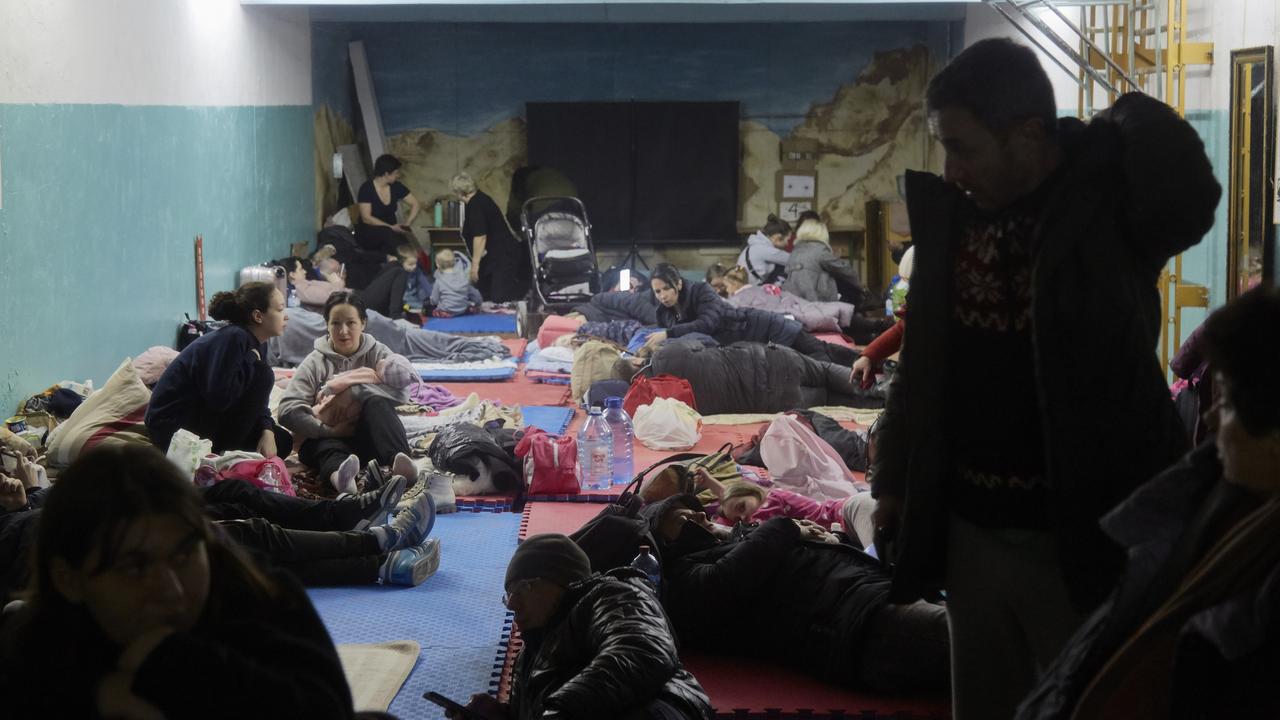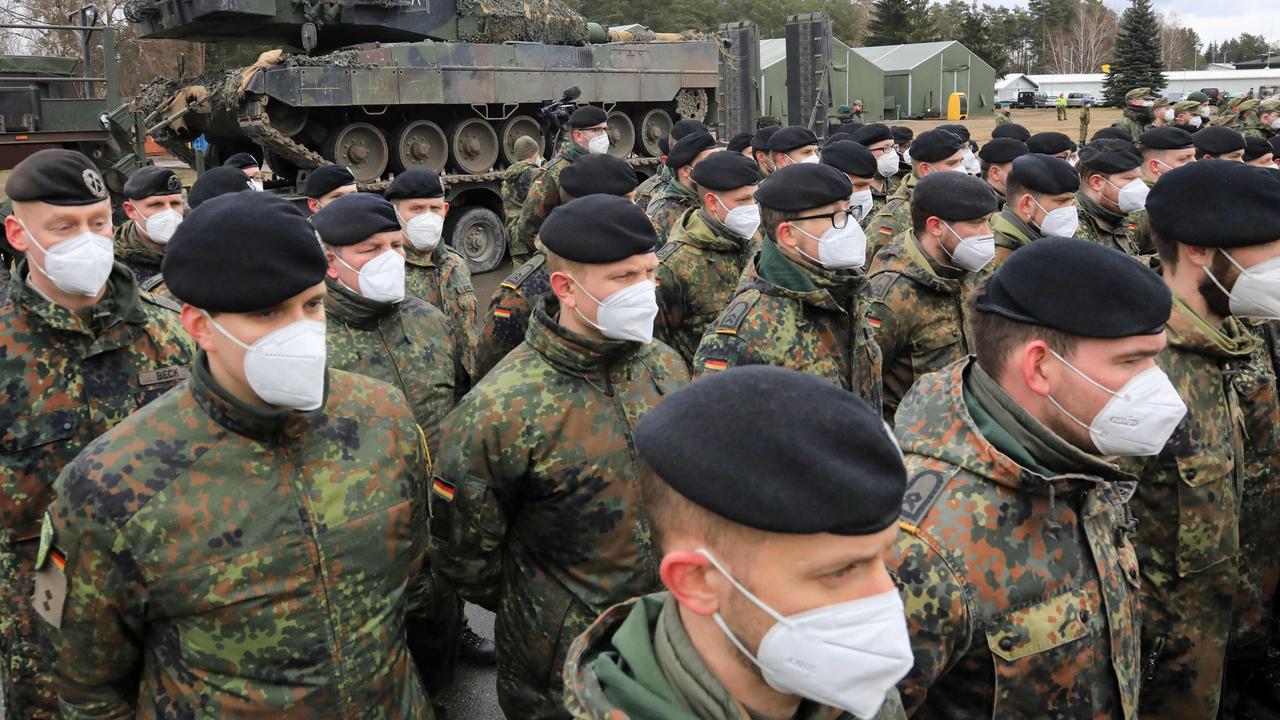How Russia’s invasion could spark new Covid variant
Russia’s attack on Ukraine could have deadly consequences for the entire world, with one expert noting “war is a good thing if you’re a disease”.
War in the Ukraine could have serious consequences for the Covid-19 pandemic as the conflict forces the movement of millions of people.
Infectious diseases expert Associate Professor Sanjaya Senanayake of Australian National University said war in general was bad for disease outbreaks.
He said soldiers in particular can be susceptible to infections due to trench warfare that sees them living in unhygienic conditions and in close quarters.
One of the biggest examples of this was the outbreak of Spanish flu at the end of World War I, which was spread widely among troops, who then spread the infection even further when they returned to their homes.
“If you look at the measures we have used to deal with Covid — physical distancing, mask wearing and testing — in a war situation where you have people fleeing and a complete breakdown of the social order, all of these Covid measures will be jeopardised,” Prof Senanayake told news.com.au.
In recent days images of fleeing Ukrainians on packed buses and trains have emerged, as well as sleeping in close quarters in train stations and bunkers, illustrating how difficult it may be to maintain social distancing measures even among the general public.

ABC journalist and physician Dr Norman Swan has also warned of the possibility of new variants and the worsening of the Covid outbreak thanks to the war in Ukraine.
“Warfare is unfortunately through the centuries a recurrent theme in either making pandemics worse or creating them in the first place,” Dr Swan said.
He said the conditions of war could also make other diseases more serious.
“Covid may be the least of it, but you will certainly see an exacerbation of Covid-19, particularly in the elderly population of Ukraine,” he said.
Prof Senanayake said that those who did get infected may also find it difficult to get proper treatment.
“As we have seen in Ukraine, hospitals have had to be evacuated so this will compromise their care,” Prof Senanayake said. “So at all levels Covid strategies are being affected.”
He also agrees higher numbers of cases would create favourable conditions for a new variant to emerge.
“Lots of cases means there will be lots of opportunity for the virus to mutate,” Prof Senanayake said.
“War is a good thing if you’re a communicable disease.”

If a new variant did emerge in the region, the war might also make it less likely it would be identified quickly, before it is able to spread to other areas.
Prior to the invasion, Covid cases in Ukraine appeared to be declining but Prof Senanayake said there was a high rate of positive cases (around 60 per cent) among those tested and this suggested many cases were not being identified.
Vaccination rates were also fairly low with only about 35 per cent of the population in Ukraine receiving two doses of the vaccine.
The war might also make it less likely for cases to be identified.
“We may not see increases in case numbers because the surveillance system to identify cases would have been disrupted by the bombing and the war,” Prof Senanayake said.
“We won’t know case numbers and who’s got it.”
Neighbouring countries may also be impacted as hundreds of thousands of Ukrainians seek safety in places like Poland, Hungary and Germany.
“If half a million go to Poland, are they going to be testing everyone?”
“We don’t know what measures they will take and this could lead to Covid issues in other countries.”






